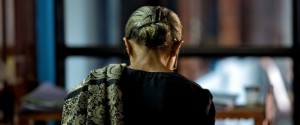The announcement was made during the festival’s formal launch at QFX Kumari in Katmandu by the Chair of Film South Asia (FSA), Kanak Mani Dixit, who expressed his disappointment at the decision over ‘Sri Lanka’s attempt to control cultural expression in Nepal’ and ‘Nepali administration’s subservient nature in accepting the same.’ Film South Asia 2013 organizers have lashed out at the Sri Lankan Government for exerting undue pressure on the Nepali authorities to ban the screening of three documentaries on Sri Lanka at the annual documentary festival held in Katmandu. The three films are ‘Broken’ and ‘The Story of One’ (both scripted and directed by Kannan Arunasalam, an award-winning Sri Lankan film maker and narrative journalist and ‘No Fire Zone’ (directed by Callum Macrae). “FSA protests this unwarranted intrusion into the cultural sphere, an action that goes against the freedom of expression and the right of documentary filmmakers to exhibit their work. This obstructs our festival’s goal of promoting regional understanding in South Asia,” said a media statement, quoting Kanak Mani Dixit, Chair of FSA. Speaking to Ceylon Today, Dixit said the three films had a special private screening at Yalamaya Kendra, Katmandu on Saturday from 6:30 p.m. and will remain a part of the FSA entries. “They are not disqualified because the authorities are cowing down, and will be eligible for the US$2000 cash award for the best film,” a defiant Dixit said. Absurd FSA’s Nayantara Gurung Kakshapati added: “It was absurd to receive a directive from the Nepali Ministry of Information and Communications through a last minute notice, requiring us to not screen the documentaries. The letter offered no explanation,” Kakshapati added. According to the original schedule, ‘Broken’ by Kannan was scheduled to be screened on Thursday 3 October, the true story of a former champion athlete’s reflections on the government’s efforts at reconciliation after his return to a Jaffna home. FSA 2013 Jury is chaired by acclaimed arts editor and cultural journalism professor Sadanand Menon of Chennai, who is joined by veteran photographer, writer, curator and activist Shahidul Alam of Dhaka and film maker, producer and Public Media Director at the Centre for Asian American Media (CAAM) Sapana Shakya of Kathmandu. FSA was established in 1997 as a biennial showcase of South Asian documentary and non-fiction films in an effort to probe deeper into and generate interest on issues specific to the region and to promote story-telling through local perspectives. “We are into the eighth edition of FSA and the Sri Lankan Government’s call was a direct interference. We have never had such an experience, adds Kakshapati who is the event’s director. “It makes us all think how freedom of expression is violated across this region and how it now extends its hand from one country to another,” Kakshapati further noted. There was an end in May 2009 when government forces finally defeated Tamil separatist rebels. Censorship to do with the media and the arts, however, has not eased up in the years since. In its current Press Freedom Index, for instance, Reporters Without Borders has ranked Sri Lanka at 162 out of 179 nations, and has also included it on its list of ‘countries under surveillance’ for censoring online media. “The regime does not hesitate to use censorship when its efforts to induce self-censorship no longer suffice,” states the organization. The directive to ban the selections for FSA ‘13 as an act by a government, which was democratically-elected but moving increasingly in an authoritarian direction, is not to be taken lightly, said the organizers. “In an imperceptible way, Nepal is moving towards a constricted space for discourse,” Dixit said. “We had better watch out.” Pressure As pressure mounted to remove the films from the festival, FSA decided on an impromptu panel discussion on Censorship held yesterday with panelists including Editor of Nepali Times Kunda Dixit, award-winning Nepali journalist Naryan Wagle, photographer and activist from Bangladesh Shahidul Alam and film maker from Myanmar, Thet Oo Maung. The special panel discussion dealt with censorship as a challenge to cultural expression both in print and electronic media, censorship in Southasia, why films should not be censored, issues of self-censorship due to power and populism and possible action by filmmakers and journalists to fight against violations of freedom of expression, specially through culture and arts. The panel discussion replaced the screening of Callum Macrae’s ‘No Fire Zone’, a film on the final harrowing months of the Sri Lankan civil war. “We put it together in response to the restrictions placed on the screening of three films on Sri Lanka, which qualified for screening subsequent to a competitive selection process,” Dixit added. Arunasalam is considered one of Sri Lanka’s most promising young documentary makers who combine a variety of media for effective story-telling. He won the Prism Short Award at the 2013 South Asian International Documentary Festival for ‘Kerosene’, produced by utilizing a small grant by Groundviews in 2011.His short films have been hailed as sensitive, compelling and perceptive in presentations of post-war life in Sri Lanka’s North. A total of 55 films from India, Pakistan, Sri Lanka, Bangladesh, Burma, Afghanistan and Nepal have been selected in this year’s festival out of 388 entries. A blatant attack on cultural freedom A defiant Chair of FSA, Kanak Mani Dixit said: “We have a weak government in Nepal, a technocratic government, and the society has been going regressive ever since the rise of the radical populism of the Maoists. “When the Sri Lankan Embassy pressured our ministry, it (ministry) did not think twice of buckling under and directing us to remove the films. We have protested, saying it is an attack on cultural freedom, the rights of the Katmandu audience to see films for themselves, and the Sri Lankan Government has no right to dictate what Nepalis are to watch or not to watch in Katmandu. |

